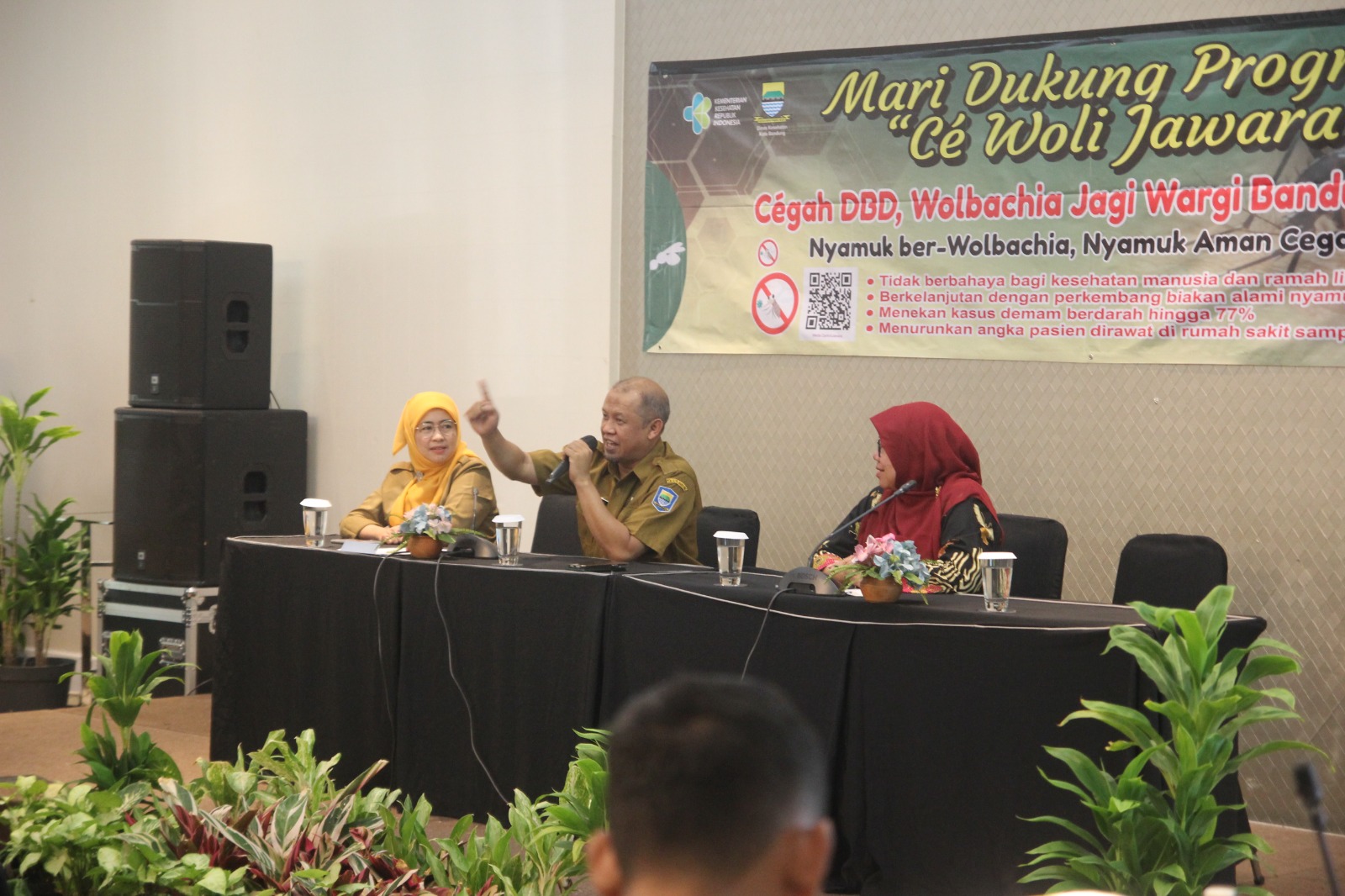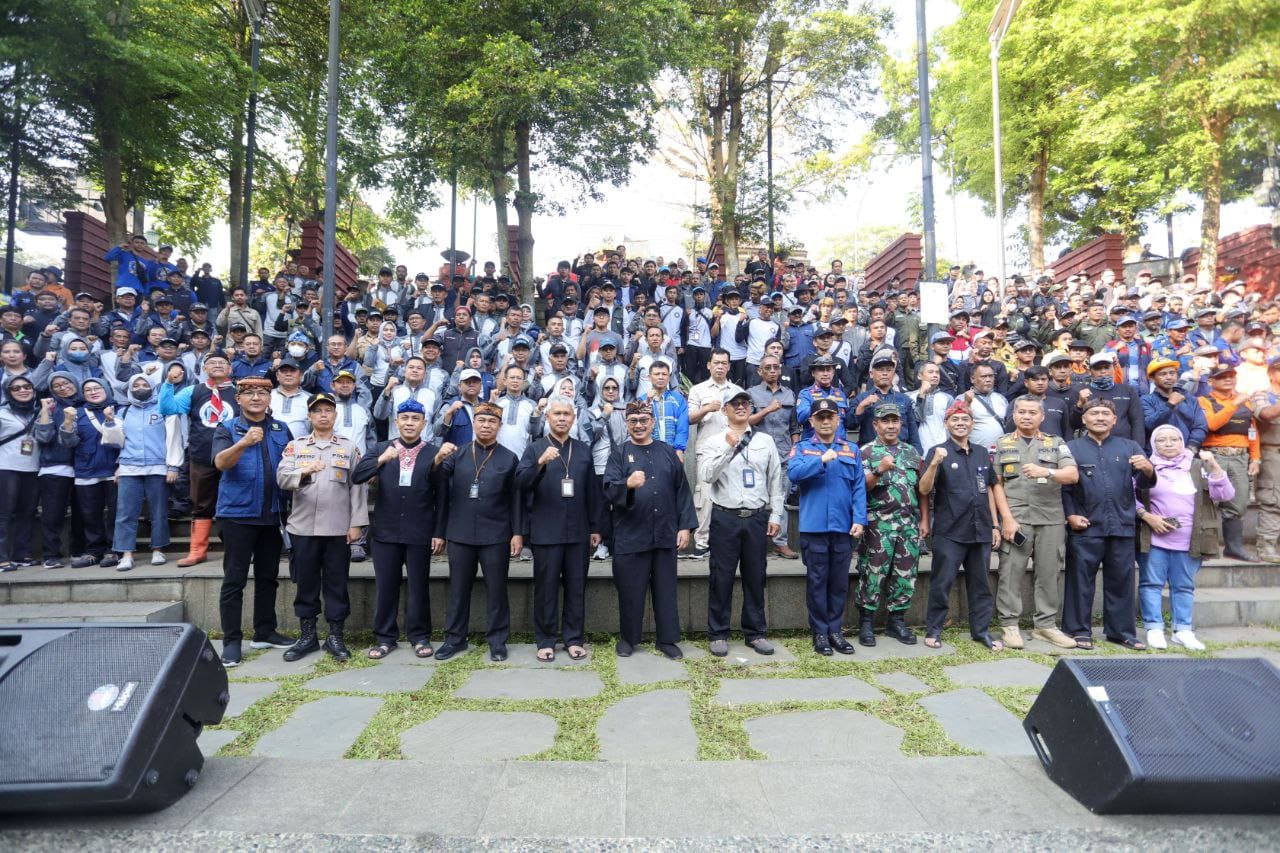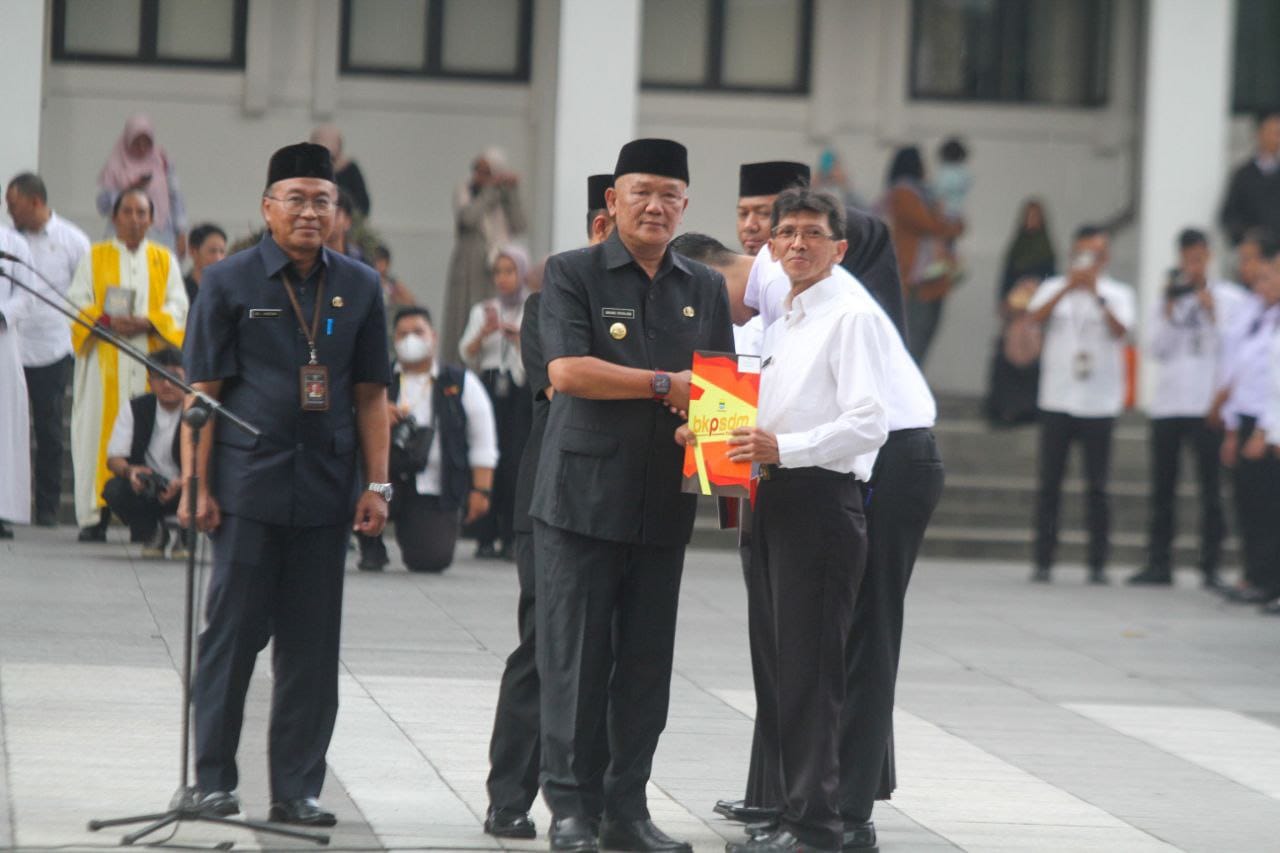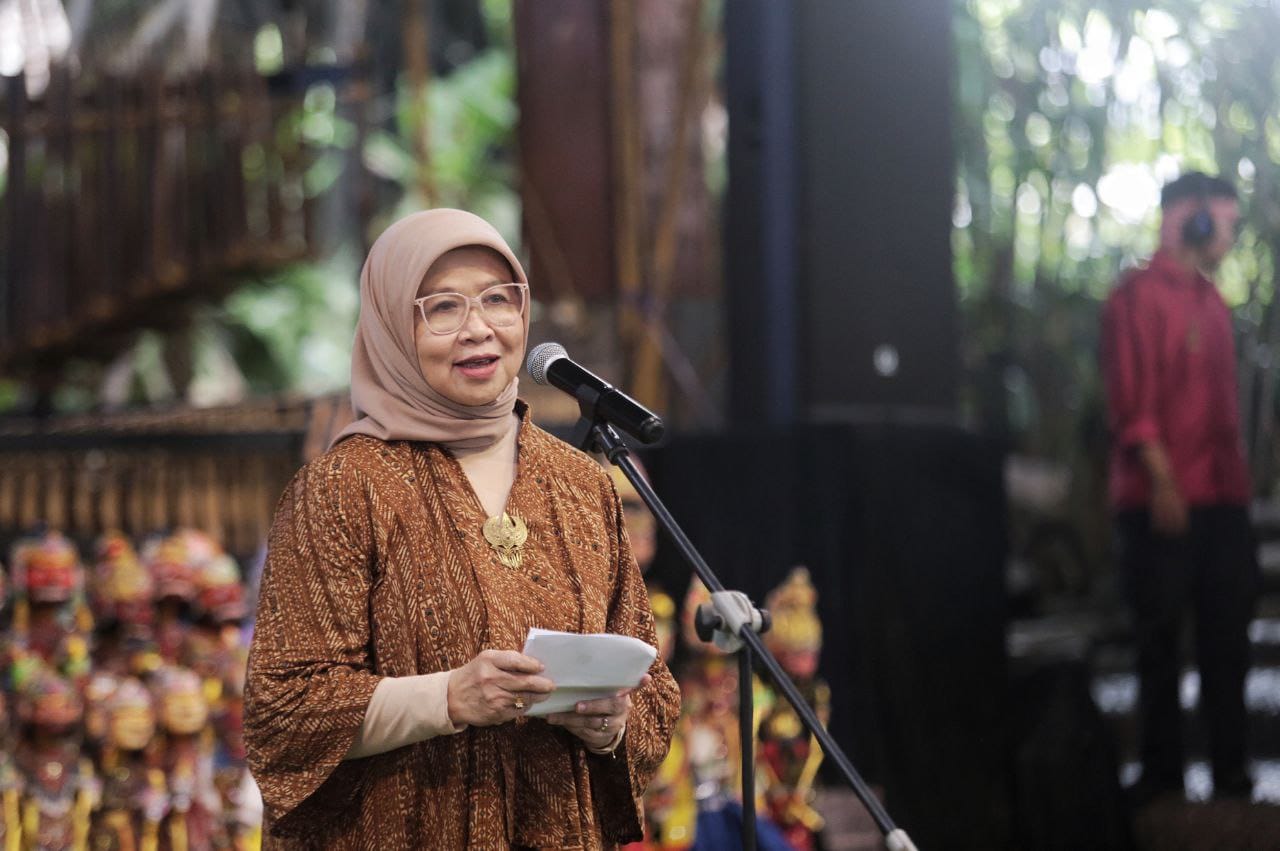Suppressing DHF Cases, Kadinkes Ensures the Wolbachia Mosquito Program is Safe
To reduce dengue fever cases in Bandung City, the Bandung City Government is implementing an innovative Wolbachia Rampage Program in Ujungberung District.

Head of the Bandung City Health Service (Kadinkes), Anhar Hadian, said that it is hoped that the Wolbachia mosquito program will be an effort to reduce dengue cases in Bandung City.
"This Wolbachia program is to prevent an increase in dengue cases in Bandung City," said Anhar, Saturday 25 November 2023.
Anhar assessed that the Wolbachia mosquito program has proven effective in reducing dengue fever levels in several areas. The first city to implement this innovation was Yogyakarta. From research and implementation of Wolbachia there, dengue fever cases could drop by 70 percent.
"We together with the Ministry of Health, UGM and related parties evaluated the Wolbachia mosquito program. A researcher from UGM, Prof. Adi Utari, has been researching Wolbachia mosquitoes for 12 years. Then it was tested and implemented in 2 cities in Yogyakarta and it turned out that the success rate was extraordinary. "DHF has fallen by 70 percent, demand for fogging in the community has fallen by 84 percent," said Anhar.
Furthermore, Anhar confirmed that the Ministry of Health had formed a risk analysis team and the results were declared safe and successful.
Anhar said that the public does not need to worry because the Wolbachia mosquito program has been tested. From the results of the risk analysis carried out, this program is proven to be safe for the next 30 years.
"The Ministry of Health also formed a risk analysis team led by 24 professors from various universities and various disciplines. As a result, the Wolbachia mosquito program was declared safe and has been implemented in 14 countries," he said.
"The risk analysis carried out by Prof. Damayanti Bukhori and the Ministry of Health shows that up to 30 years later this program is safe. We believe that the Wolbachia mosquito program is safe and is expected to reduce dengue cases," he added.
Currently, wolbacia eggs have been distributed in the Pasanggrahan Village, Ujungberung District
123,000 - 154,000 eggs placed in 308 buckets.
Later, this program will go through several phases. Namely, the mosquito distribution phase lasts for 6 months, then the impact phase is around 1 to 2 years later.
This program, said Anhar, is expected to reduce dengue fever cases in Bandung City. However, the implementation of Wolbachia does not mean replacing all existing dengue prevention efforts.
The previous steps will continue to be implemented, such as 3M (draining, covering and burying), fogging according to indications, and the One House One Jumantik Movement.
"If this can be implemented evenly, it is hoped that the number of cases will decrease because the dengue virus is no longer there. Then, fogging can also be reduced, so that funds can be diverted to other more important things," he said.
Meanwhile, the Indonesian Ministry of Health (Kemenkes) appealed to the public not to easily believe a number of hoax news related to wolbachia that is widely circulating in cyberspace.
"The Ministry of Health has done this (the Wolbachia mosquito program) and included it in the national strategy based on studies, WHO recommendations and also benchmarks from other countries," said the Director General of Disease Prevention and Control of the Indonesian Ministry of Health, Maxi Rein Rondonuwu, in a media briefing about Wolbachia which was closely followed. online in Jakarta, Friday.
Maxi believes that in this open era, the possibility of hoaxes related to various things, including health, is very easy to find.
For this reason, the Ministry of Health continues to make efforts to provide good information, not only from the Ministry of Health, but also a number of experts and researchers. (rob)**
Head of the Bandung City Communication and Information Office
Yayan A. Brilyana









